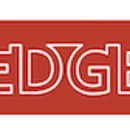The Edge Debate
The Edge is a campaigning built and natural environment think tank and network. It is multi-disciplinary in a landscape remarkable for its abundance of single-discipline institutions.
Contents |
[edit] Who we are
We have been described as a virtual institution. Started as a means of creating a shared space between the architectural and engineering institutions, the Edge was never going to fulfil this mission if it turned itself into yet another institution and squeezed into any space that is left. Instead we have existed as a voluntary group in temporary space with no staff and lots of stakeholders.
[edit] What we’re about
The Edge Debate is a process of thinking about how the built and natural environment could be better. It involves the ‘why’, ‘what’, and ‘where’ questions.
WHERE are we headed as an economy, as a society and as a polity and does our built and natural environment help us or hinder us?
WHAT can we afford to build with the ever-diminishing amounts of carbon to which we are entitled?
WHY haven’t we been able to improve the built and natural environment in the ways we know we should have: such as energy performance, simplified building and planning regulations, inter-institutional working, appropriate R&D investment and dealing with waste?
[edit] How we work
We work through debate. It is not the only way we work but it is the main way and suits the amount of sustained voluntary resource we are able to call upon.
ARE WE REPRESENTATIVE?
No. We share a passion for ideas and have come together because we enjoy the exchange of ideas. We do this at monthly committee meetings and when we think we have got something we want to share with the industry we hold a debate. We invite people who we think know something about the subject and have something to contribute. We see ourselves as being more radical than accountable.
DEBATES
As we are interested in ideas we love debates. Ideas get to speak for themselves and what is valuable is not necessarily where we started from. Our debates are not contests in the Oxford Union style but rather three speakers and a chairman leading a discussion of a roomful of people, many of whom will be acknowledged experts in the field.
THE DEBATE FORMULA
Our starting point for a debate is that with informed audiences there is a lot of knowledge on the floor. To tap this knowledge we need speakers who will lead the discussion but still leave enough time for considered responses. We ask speakers to talk for a short time and expect most people in the audience to make a contribution. Such meetings work best when there are 40-60 people in the room.
The outcome is not a victory for one initial proposition over another but usually a process where a new position emerges over the course of an evening, one that has been considered and endorsed by the constituency of the room. Often it is a specific or a series of policy recommendations.
At times we lobby for these recommendations but this can quickly exhaust our supply of voluntary capital. At other times we hope the engineering and architectural institutions will put the shoulder to the wheel …
[edit] A note about copyright
Where available, PDFs of presentations used by debate participants are included on this website. These may contain copyrighted material the use of which has not always been specifically authorised by the copyright owner for this presentation, and where possible we have tried to ensure that we have sufficiently acknowledged the copyright owner. They are being made available in an effort to advance the understanding of environmental, social justice, scientific, cultural and artistic issues and are distributed without profit to those who have an interest in using information for research or educational purposes.
[edit] Get in touch
We feel we could do more, and sometimes we do. If you have ideas about what more we could do we would love to hear from you. Get in touch with us, follow our updates, events, publications see link above.
--The Edge
[edit] Related articles on Designing Buildings
Featured articles and news
A case study and a warning to would-be developers
Creating four dwellings... after half a century of doing this job, why, oh why, is it so difficult?
Reform of the fire engineering profession
Fire Engineers Advisory Panel: Authoritative Statement, reactions and next steps.
Restoration and renewal of the Palace of Westminster
A complex project of cultural significance from full decant to EMI, opportunities and a potential a way forward.
Apprenticeships and the responsibility we share
Perspectives from the CIOB President as National Apprentice Week comes to a close.
The first line of defence against rain, wind and snow.
Building Safety recap January, 2026
What we missed at the end of last year, and at the start of this...
National Apprenticeship Week 2026, 9-15 Feb
Shining a light on the positive impacts for businesses, their apprentices and the wider economy alike.
Applications and benefits of acoustic flooring
From commercial to retail.
From solid to sprung and ribbed to raised.
Strengthening industry collaboration in Hong Kong
Hong Kong Institute of Construction and The Chartered Institute of Building sign Memorandum of Understanding.
A detailed description from the experts at Cornish Lime.
IHBC planning for growth with corporate plan development
Grow with the Institute by volunteering and CP25 consultation.
Connecting ambition and action for designers and specifiers.
Electrical skills gap deepens as apprenticeship starts fall despite surging demand says ECA.
Built environment bodies deepen joint action on EDI
B.E.Inclusive initiative agree next phase of joint equity, diversity and inclusion (EDI) action plan.
Recognising culture as key to sustainable economic growth
Creative UK Provocation paper: Culture as Growth Infrastructure.























